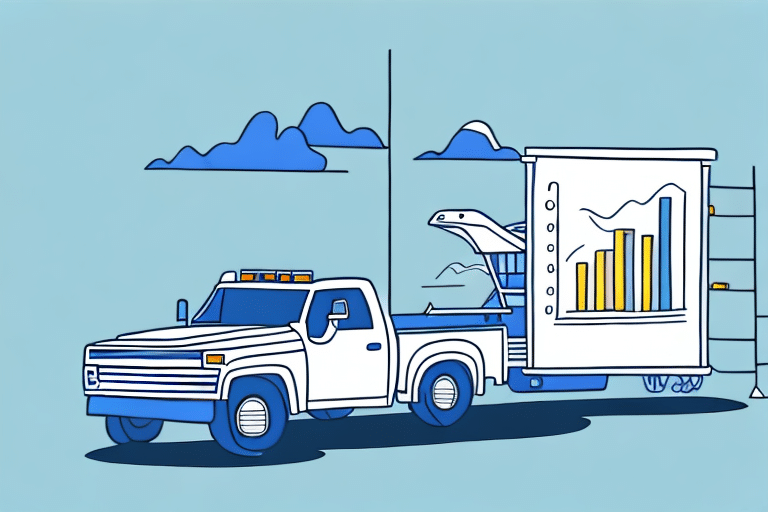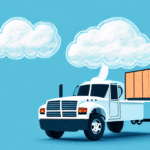Understanding Transportation Insurance
Transportation insurance is a critical component for any business involved in moving goods from one location to another. It safeguards against losses due to accidents, theft, and damages during transit. This comprehensive guide explores how transportation insurance works, its significance, various coverage types, and strategies for selecting the best policies for your business needs.
How Transportation Insurance Works
Transportation insurance is a contractual agreement between a business and an insurance provider. The insurer assumes the risk of loss during transportation, while the business pays regular premiums to maintain the policy. The coverage terms outline the extent of protection and the conditions required for claim processing.
Different modes of transportation necessitate distinct insurance policies. For instance, marine insurance covers maritime shipping risks, whereas motor truck cargo insurance addresses ground transportation hazards. Selecting the appropriate policy is essential to align with your specific transportation requirements.
Beyond loss protection, some transportation insurance policies offer additional benefits, such as coverage for legal fees and expenses related to transportation-related lawsuits. This feature helps businesses mitigate the financial impact of legal disputes and maintain their industry reputation.
The Importance of Transportation Insurance
For businesses heavily reliant on transportation, insurance is indispensable. The unpredictable nature of transit operations—ranging from accidents and thefts to goods damage or loss—can lead to substantial financial setbacks. Without adequate insurance, these unforeseen events could jeopardize a business's financial stability and operational continuity.
Furthermore, transportation insurance fosters confidence among business owners and their clients. Assurance that goods are protected during transit enhances customer trust, which can lead to increased satisfaction, loyalty, and a stronger market reputation.
According to a Statista report, businesses that invest in comprehensive transportation insurance experience 30% fewer financial losses related to transit incidents compared to those without adequate coverage.
Factors Affecting Transportation Insurance Costs
Various elements influence the cost of transportation insurance. These factors help insurance companies assess the risk associated with insuring a business and determine premium rates accordingly. Understanding these factors enables businesses to make informed decisions about their insurance needs.
Safety Record
A business's safety history is a significant determinant of insurance costs. Companies with fewer accidents and incidents typically enjoy lower premiums, reflecting their lower risk profile. Conversely, a history of frequent claims or safety violations can lead to higher insurance rates.
Type and Value of Goods
The nature of the goods transported—whether high-value, perishable, or hazardous—affects insurance premiums. Transporting high-value or dangerous materials often requires more extensive coverage, resulting in higher costs.
Distance and Frequency
Longer transportation distances and higher shipment frequencies increase exposure to potential risks, thereby elevating insurance costs. Businesses that frequently move goods over vast regions may face higher premiums compared to those with localized operations.
Geographical Factors
The regions through which goods are transported can impact insurance costs. Areas with higher crime rates or greater exposure to environmental hazards may attract higher premiums.
Types of Transportation Insurance Coverage
Transportation insurance encompasses a variety of coverage types, each designed to address specific risks associated with moving goods. Understanding these options is crucial for businesses to select the most appropriate coverage for their operations.
Cargo Insurance
Cargo insurance protects against the loss or damage of goods during transit. It covers a range of risks, including theft, accidents, and natural disasters. Different policies offer varying levels of protection based on the nature and value of the cargo.
Commercial Auto Insurance
This insurance type covers vehicles used for business purposes. It includes protection against vehicle damages, liability for bodily injuries, and property damage caused by business vehicles.
General Liability Insurance
General liability insurance offers broad protection against various business risks, including property damage, bodily injury, and advertising-related claims. It's essential for covering unforeseen liabilities that may arise during transportation activities.
Workers' Compensation Insurance
For businesses employing drivers or other transportation personnel, workers' compensation insurance provides benefits to employees injured on the job. This includes coverage for medical expenses and lost wages, ensuring employee welfare and compliance with legal requirements.
Selecting the Right Transportation Insurance Policy
Choosing an appropriate transportation insurance policy requires careful consideration of your business's specific needs, risks, and operational dynamics. Partnering with an experienced insurance broker can facilitate this process by providing expert guidance and access to a range of insurance options.
Assessing Your Business Needs
Evaluate the types of goods you transport, the modes of transportation you use, and the associated risks. This assessment will help determine the necessary coverage types and levels required to adequately protect your business.
Consulting an Insurance Broker
An insurance broker can offer valuable insights into various insurance products, helping you navigate the complexities of policy options. They can assist in customizing coverage to align with your business's unique requirements and risk profile.
Evaluating Insurance Providers
When selecting an insurance provider, consider their reputation, financial stability, and customer service quality. Experienced providers understand transportation-specific risks and can offer tailored solutions to meet your business needs.
Managing Claims and Avoiding Mistakes
Effective claims management and avoiding common pitfalls are vital for maintaining seamless transportation operations and ensuring robust insurance coverage.
Common Claims and Prevention
Typical insurance claims in transportation include theft, accidents, and cargo damage. Implementing preventive measures such as rigorous safety training, background checks for drivers, and the use of GPS tracking systems can significantly reduce the likelihood of these incidents.
Filing an Insurance Claim
In the event of a loss, promptly document the incident, gather necessary evidence, and submit a detailed claim to your insurance provider. Timely and accurate claim filing ensures a smoother resolution process and quicker financial recovery.
Avoiding Common Mistakes
- Inadequate Coverage: Ensure your policy covers all relevant risks to avoid gaps in protection.
- Ignoring Policy Terms: Familiarize yourself with policy conditions to avoid claim rejections.
- Choosing Based Solely on Price: Balance cost with the comprehensiveness of coverage to ensure adequate protection.
The Future of Transportation Insurance
The transportation insurance landscape is evolving with technological advancements and changing industry dynamics. Staying informed about emerging trends can help businesses adapt and optimize their insurance strategies.
Technological Innovations
Advancements such as autonomous vehicles, big data analytics, and the Internet of Things (IoT) are transforming transportation insurance. These technologies enable real-time monitoring of vehicles and cargo, enhancing risk assessment and enabling more personalized insurance policies.
According to a Forbes Technology Council article, the integration of AI and machine learning in insurance processes is expected to improve claim accuracy and reduce processing times.
Global Trade and Supply Chain Diversification
Increasing globalization and the need for diversified supply chains drive demand for comprehensive transportation insurance coverage. Businesses are seeking insurance solutions that can accommodate complex international logistics and mitigate risks associated with global trade.
Sustainability and Green Logistics
The shift towards sustainable and eco-friendly logistics practices is influencing transportation insurance. Insurers are developing policies that support green initiatives, such as coverage for electric and hybrid vehicles, promoting environmentally responsible transportation methods.
Conclusion
Transportation insurance is indispensable for businesses dependent on moving goods. It offers protection against unpredictable losses, ensuring financial stability and operational continuity. By carefully selecting the right policies, collaborating with experienced insurance brokers, managing claims effectively, and staying abreast of industry trends, businesses can optimize their transportation insurance coverage. This strategic approach not only safeguards assets but also fosters trust and reliability with customers, driving long-term success.




















